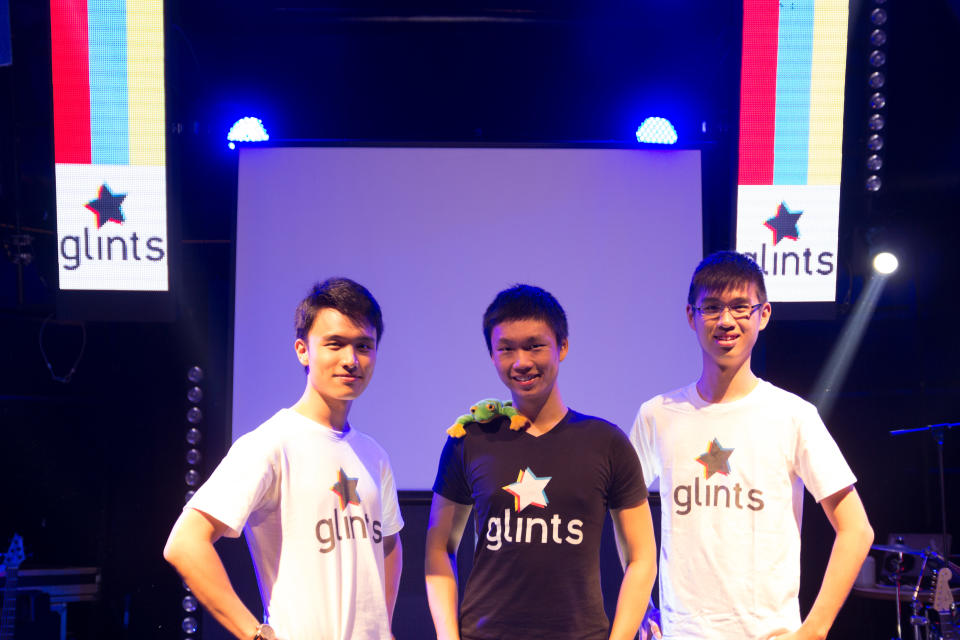Glints founders defer studies to shake up online recruitment, raise $475k in seed money

From left: Glints founders Ying Cong Seah, Oswald Yeo, and Qin En Looi.
Successful college-age entrepreneurs are exceptions rather than the norm. While we’re most familiar with caricatures of Steve Jobs, Bill Gates, and Mark Zuckerberg – who all started their companies barely out of puberty – the reality is that the most durable startups are run by grown-ups with professional experience, not dorm room kids.
Yet for Oswald Yeo, Ying Cong Seah, and Qin En Looi, bright 21-year-old Singaporeans bound for Wharton Business School, Stanford, and Berkeley respectively, starting up can’t wait. In academically-driven Singapore, few youths would postpone studies in prestigious universities in exchange for the unlikely chance of creating a rocket ship startup. They’re withstanding familial and societal pressure to take this path.
Their enthusiasm led to a vote of confidence from noteworthy investors in Singapore’s tech scene. The JFDI alum raised US$475,000 in seed funding led by prolific venture capital firm East Ventures (Disclosure: East Ventures is an investor in Tech in Asia. See our ethics page for more information). 500 Startups, SPH Media Fund, Infocomm Investments, 8 Capital, and Pix Vine Capital, along with angel investors John Tan and Darius Cheung, were also involved in the round. Their age makes the trio possibly the youngest tech entrepreneurs in Southeast Asia to get venture capital money.
LinkedIn for youths
Just what is their big idea? It’s called Glints, and it’s a recruitment site that connects fresh grads or about-to-graduate jobseekers with employees. While it started out as a jobs site for internships, their interactions with students uncovered a more pressing need. Oswald Yeo, co-founder of Glints, tells Tech in Asia:
We realized that the predominant questions most youths are asking are: ‘what am I going to do with my life?’ and ‘what skills do I need?’ Internships are only a small of the equation. This insights prompted the evolution of Glints into a career discovery and development platform.
The company is working on a key feature called the “dynamic skills tree”. In the near future, a user can log on to Glints, indicate his interests, and receive a set of recommended careers he can pursue. Each career path comes with a skill tree that shows projects, internships, and courses he can take. Once completed, these stints will reflect on his Glints profile, which employers can discover and then reach out to the person for an interview.
It’s a game-like approach that solves a problem: the empty LinkedIn profile that many students have. “Most adults use LinkedIn to show off their career experiences. What about the millions of college graduates graduating each year, with not much career experiences to show? How will employers know who has the right skills for the job?” Yeo asks.

On the employer side of things, Glints promises a mix of human and algorithmic screening to bring companies quality candidates. “The screening algorithm at the moment is still rules-based, but it is already functional at enhancing the human filtering process. We tokenize the resumes to tease out the vital information, including skills sets, and rank them based on relevancy to the jobs.”
In the near future, the algorithm will adapt to the different priorities of employers, since companies value different traits they value most in an employee. The algorithm will also account for hiring trends as it will adapt to the job market’s changing expectations.
On the business model side of things, Glints will only charge employers once they contact a potential match. Alternatively, companies can also pay a monthly subscription fee to access Glints’ entire database of jobseekers.
The startup’s approach is unique and departs from the incumbent online jobs search industry. Sites like JobsCentral and JobsDB charge employers to list, and users end up paying tons of money for candidates who fail to hit the mark (Glints investor SPH owns STJobs incidentally). LinkedIn has wrestled its way into the jobs search market, but it doesn’t cater to inexperienced jobseekers. Finally, “social” job sites like JFDI alum Tribehired sought to use social networks to bring warm leads to the interview room, yet the startup has pivoted to another idea.
The absence of a true game changer, particularly here in Asia, means the time may be ripe for Glints to take a stab at creating its own “ding” in the jobs search space. The rise of massive online open courses (MOOC) led by Coursera also presents a great opportunity for Glints. “[Real world skills acquisition] is still fairly untouched by the education revolution, and now would be the best time to capitalize on the opportunity as an early mover,” says Yeo.
Glints essentially wants to link these online courses with a structured curriculum tailored to each career path. In other words, the startup doesn’t just have the potential to change online recruitment. It could impact education itself.
We are young
The team of five, consisting of the co-founders and two engineers, has gotten early validation. Yeo, Seah, and Looi, who worked together on business plan competitions prior to their current gig, graduated from JFDI in July 2014 and the site now has 7,000 monthly active jobseekers and 600 companies that are listing jobs on the site. It went from a few hundred jobseekers to over 3,000 in several weeks.
Global expansion is definitely on the cards. Yeo says that the time spent at US universities has convinced the team that the problem they’re cracking is a global one that’s not just limited to Singapore.
While starting a company as a youth carries disadvantages, Glints has turned that into a selling point. Consider one of the hottest startups in the chat app space right now. Snapchat founder Evan Spiegel is only 24, yet his app has supplanted Facebook as the go-to communications tools among young people in the US. Just by interacting with and observing their peers, young entrepreneurs are privy to trends that the most wizened execs might miss.
Further, the lack of experience can be padded up by seeking guidance. “We feel really lucky that we have been given the opportunity to start so young. Due to our young age, many successful entrepreneurs and investors have been extremely generous in mentoring us,” says Yeo.
This post Glints founders defer studies to shake up online recruitment, raise $475k in seed money appeared first on Tech in Asia.

 Yahoo Finance
Yahoo Finance 
